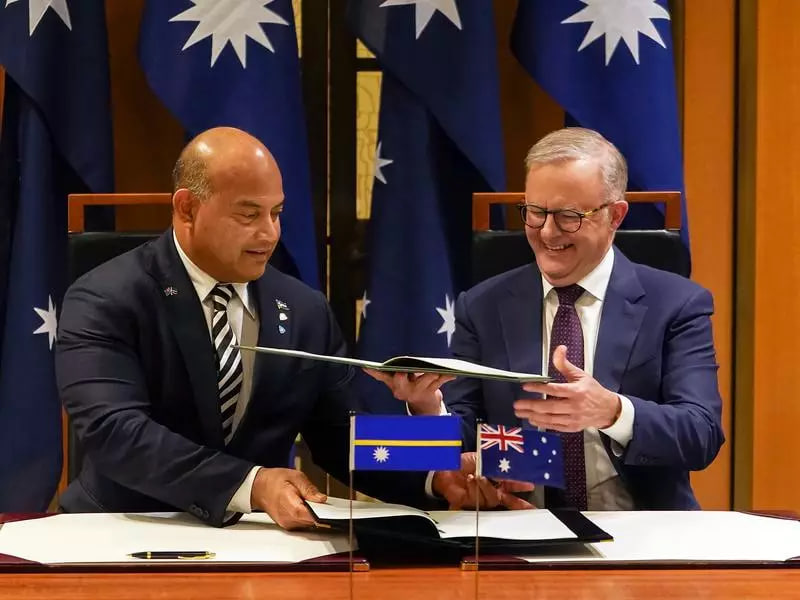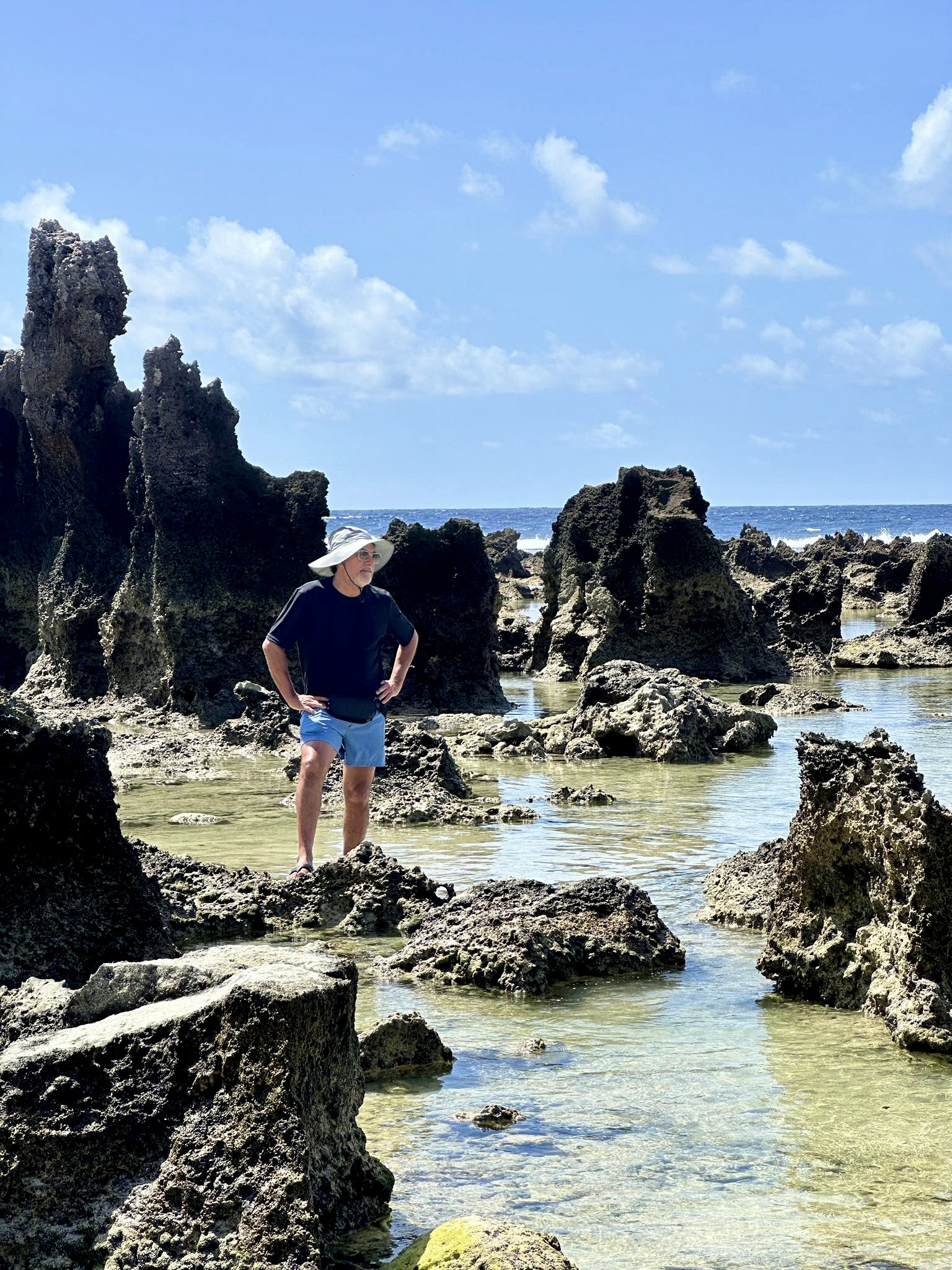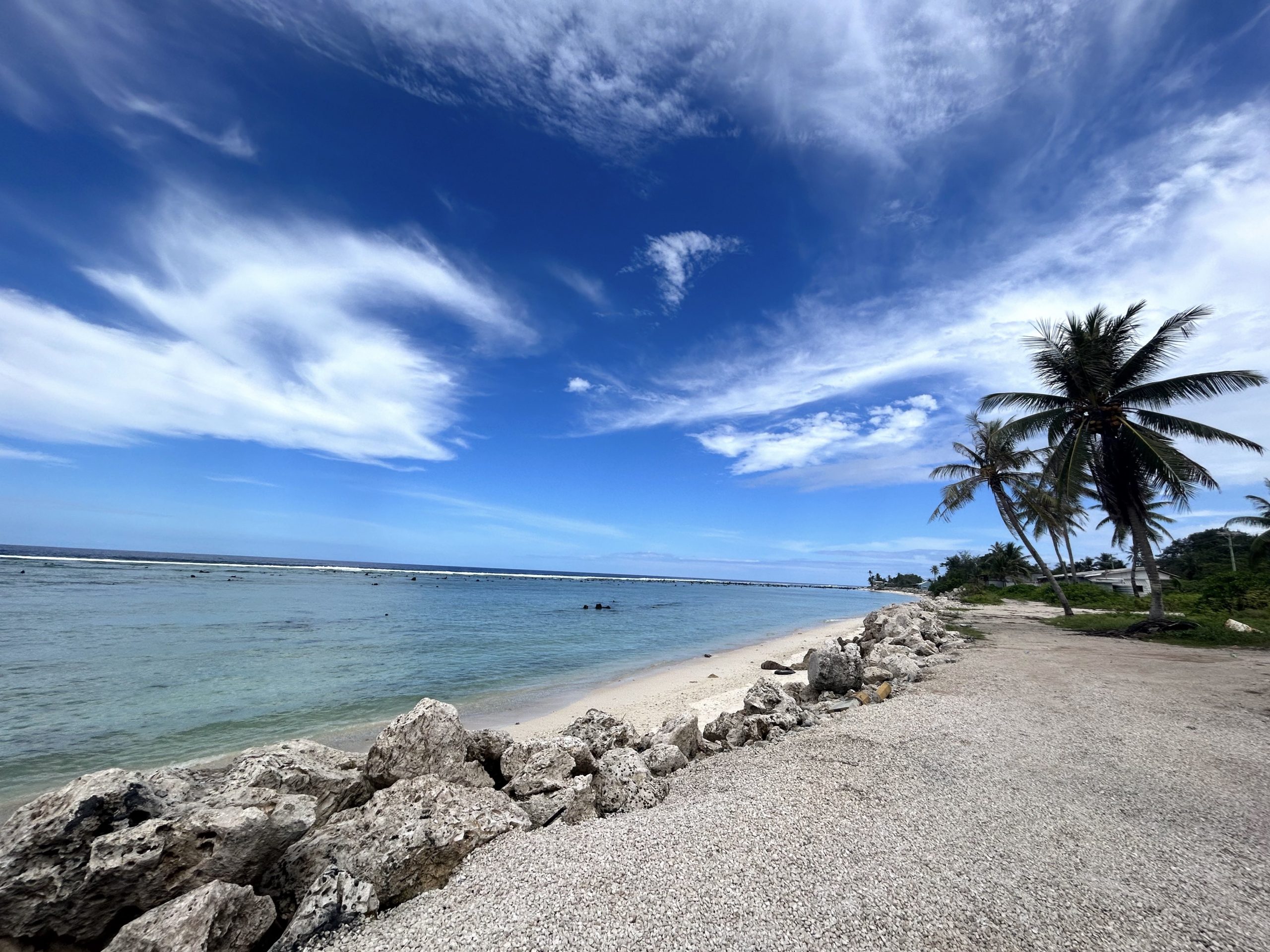The recent Australia – Nauru Pact has sparked significant debate, with many focusing on its implications for the Pacific region, particularly in relation to China’s growing influence.
However, while the deal certainly has a bearing on the geopolitical dynamics between Australia and China, it also reflects a broader shift in Nauru’s foreign policy, which includes its diplomatic recognition of Abkhazia and South Ossetia, as well as its switch from Taiwan to China in 2023.
We look at what it means for Nauru, as well as for tourism in general within the Republic.
The Australia – Nauru Pact: Strengthening Bilateral Relations
The Australia – Nauru Pact is designed to enhance bilateral cooperation in several key areas, including security, economic development, and regional stability. For Australia, the pact is an important step in maintaining strong ties with its Pacific neighbors, particularly given the growing competition from China. The agreement includes provisions for increased economic aid, joint security initiatives, and greater engagement in regional projects.
The Australia – Nauru Pact is part of a broader strategy by Australia to solidify its influence in the Pacific. This region has become increasingly important as China’s presence grows, with Beijing making significant inroads through trade, infrastructure development, and diplomatic support. Australia, traditionally the dominant power in the Pacific, sees this agreement as a way to counterbalance China’s influence and ensure its continued relevance in the region.

(Photo: Dominic Giannini/AAP PHOTOS)
Nauru’s Diplomatic Shift: Taiwan to China
One of the most significant developments in Nauru’s foreign policy in recent years was its decision to switch diplomatic recognition from Taiwan to China in 2023. This move was part of a broader trend in the Pacific, where several countries have reassessed their relationships with Taiwan in favor of China’s growing economic and political influence. Nauru’s decision to recognize China was driven by the promise of economic support and development assistance, which China has increasingly offered to Pacific nations without the political demands often associated with Western aid.
The decision to recognize China marked a departure from Nauru’s long-standing ties with Taiwan, which had been one of the few remaining countries to maintain formal relations with Taipei. For Nauru, the shift was a pragmatic move to secure financial support, as the country faces significant economic challenges. In return for diplomatic recognition, China offered Nauru economic aid, infrastructure development, and other forms of support, all of which were seen as critical to Nauru’s economic future.
Click the link to read if Nauru is communist.
Nauru’s Recognition of Abkhazia and South Ossetia: A Statement of Independence?
In addition to its shift in diplomatic recognition, Nauru has also made headlines for its recognition of Abkhazia and South Ossetia, two breakaway regions of Georgia. This recognition was controversial, as the two regions declared independence with Russia’s support, but they are not widely recognized by the international community. Nauru’s decision to recognize these territories was seen as a reflection of the country’s willingness to engage with non-Western powers and assert its independence in global affairs.
The recognition of Abkhazia and South Ossetia further highlighted Nauru’s ability to make foreign policy decisions outside the traditional Western sphere of influence. While the recognition was largely symbolic, it signaled Nauru’s desire to engage with countries beyond the Western bloc, including Russia. Was there an economic incentive? Perhaps, but whatever the reason it was certainly something that scared the west.



The Australia – Nauru Pact and Regional Security
While much of the attention surrounding the Australia – Nauru Pact has focused on its implications for China, it is also important to consider the agreement’s impact on regional security. Australia has long been a key partner in the Pacific’s security architecture, and the Australia – Nauru Pact is part of its broader strategy to maintain its influence in the region. The agreement includes provisions for joint security initiatives, which could involve cooperation on issues such as maritime security, counterterrorism, and disaster response.
These security initiatives are not explicitly aimed at countering China, but they reflect Australia’s desire to maintain its position as the dominant security partner in the Pacific. As China continues to expand its presence in the region, Australia’s security partnerships with countries like Nauru will become increasingly important. However, Nauru’s growing relationship with China complicates this dynamic, as the country seeks to balance its ties with both Australia and China.
Nauru’s Role in the Pacific: A Strategic Balancing Act
Nauru’s position in the Pacific is unique. As one of the smallest countries in the world, it has limited resources and influence. However, its strategic location and growing relationships with China and Russia give it a significant role in the region’s geopolitical dynamics. The Australia – Nauru Pact is part of Australia’s broader effort to maintain its influence in the Pacific, but it is also clear that Nauru is pursuing a more independent foreign policy, one that balances its need for economic support with its desire for political independence.
In the coming years, Nauru will likely continue to navigate its relationships with both Western and non-Western powers. As China’s influence in the Pacific continues to grow, and as Russia seeks to expand its presence, Nauru’s foreign policy decisions will have significant implications for the region’s geopolitical future.
Conclusion: Will at affect tourism?
Sadly much of the infrastructure of Nauru is struggling, as anyone who has stayed at the Menem Hotel can attest to. Hopefully this will mean that having two powers courting you will mean both investing in the country. This is perhaps already being seen with regards to the new port which is being paid for by Australia and built by China.
If this can extent to other areas, such as roads and ideally hotels then everyone will win. After all while not everyone might like it Nauru swapped to China for a reason and be unlikely to be accept falling behind other Pacific Island nations.
You can witness the journey of Nauru on our Least Visited Countries Tour, as well as on a bespoke tour of Nauru.





